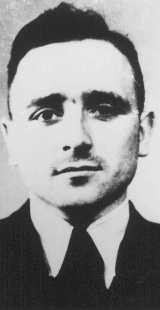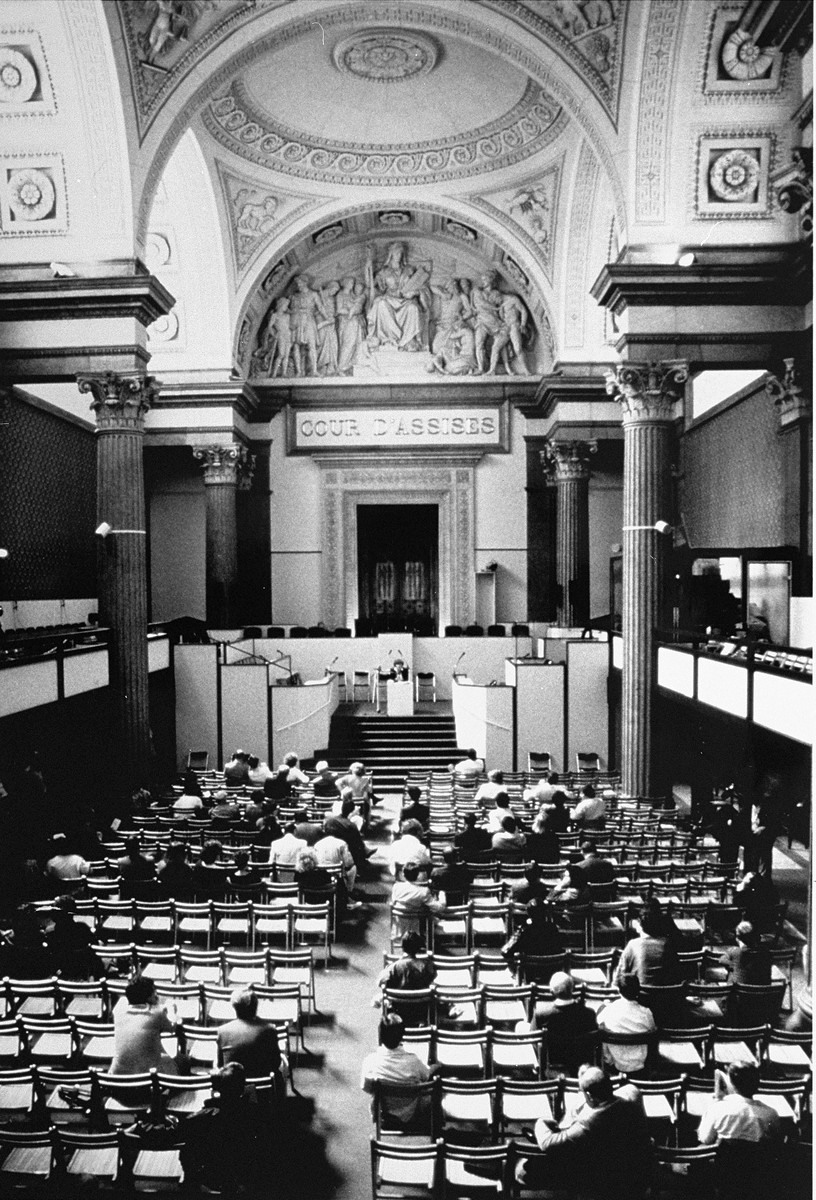
Klaus Barbie: The Butcher of Lyon
Nikolaus "Klaus" Barbie was the chief of the Gestapo in Lyon, France, a vital center of the French Resistance, during World War II. He was responsible for the execution or murder of over 4,000 individuals and for the deportation of 7,500 Jews, the majority of whom perished in Auschwitz. After the war, Barbie worked for American intelligence services before escaping to South America. He was extradited to France in 1983 to stand trial for war crimes.
Key Facts
-
1
After the war, Barbie cooperated with the US Army Counter-Intelligence Corps (CIC) to report on communist activities in the American zone of occupation. The CIC helped Barbie escape to South America.
-
2
While living in South America, Barbie worked for the West German intelligence service and was protected by the Bolivian government, where he had several close connections.
-
3
In 1983, Barbie was extradited to France to stand trial for war crimes. In 1987, the court sentenced Barbie to life imprisonment.
Early Life
Nikolaus “Klaus” Barbie was born in Bad Godesberg, near Bonn, in 1913. In 1933, the death of his father prevented Barbie from attending university in order to study theology. While seeking out a career, the 22-year-old Barbie joined the SS in 1935. He began working with the Security Service (Sicherheitsdienst, or SD), which served as the Nazi regime’s intelligence network. In his initial post he trained as an interrogator, a role to which he would return later in his career to terrifying effect.
World War II
Following the capitulation of the Netherlands to the German army in May 1940, Barbie was assigned to intelligence work in Amsterdam. In 1942, he was reassigned to France, first to Dijon and then to Lyon, which was the center of the French Resistance Movement. As the local Gestapo chief, Barbie earned the nickname “the Butcher of Lyon” for his brutal actions towards Jews and members of the French Resistance.
In all, it is believed that Barbie was responsible for the execution or murder of over 4,000 individuals and for the deportation of 7,500 Jews, most of whom perished in Auschwitz.
Jean Moulin
Known for his ruthless cruelty, Barbie personally interrogated and tortured his victims from his headquarters in the notorious Hotel Terminus. His most famous victim was the hero of the French resistance, Jean Moulin, whom Barbie personally interrogated on a daily basis for three weeks. Moulin refused to divulge any intelligence to his captors, and died from the effects of his torture near Metz on July 8, 1943, on his way to captivity in Germany.
Izieu Children's Home
Another of Barbie’s most infamous crimes was the deportation of youngsters from a children’s home in Izieu in southern France. Their would-be rescuers, Sabine and Miron Zlatin, had hidden the children in a remote farm house in the Rhone Valley. The children ranged in age from 4 to 17. Their Jewish identities were a closely guarded secret, and in official records the young persons were identified only as refugees. On the morning of April 6, 1944, Barbie led a raid on the children’s colony, capturing 44 children and seven adult caretakers. Fearing that local authorities might intervene, Barbie arranged for their immediate transfer to Drancy transit camp. Miron Zlatin and two of the oldest youngsters were ultimately sent to Tallinn, Estonia, where they were shot to death. The rest of the children were deported to Auschwitz, where they were gassed immediately upon arrival.
Postwar and Escape
Barbie left Lyon in August 1944, just a month before the United States Army liberated the city. He made his way back into Germany, where he joined the fighting until the war ended. After the war, the French government filed charges against Barbie. His name was published on lists of wanted war criminals compiled by both the United National War Crimes Commission and the Central Registry of War Criminals and Security Suspects (CROWCASS). Although Barbie was arrested at least twice, he was not identified.
In 1946, Barbie was living under an assumed name in Marburg, Germany, and worked with an organized group of Nazis to form a new German government. In 1947, a US Army Counter-Intelligence Corps (CIC) officer located Barbie, but instead of arresting him, the officer recruited the wanted war criminal as an informant. Between 1947 and 1951, Barbie supplied the American officials with information about French intelligence and Soviet and anti-communist activities in the US zone of occupied Germany.
By the time the French government requested extradition of Barbie from American officials in 1949, it was public knowledge that Barbie was living freely in the American zone under a false identity. As the French demands for extradition escalated, the CIC decided it was too risky to continue using Barbie as an informant. However, the CIC was not willing to hand Barbie to the French, fearing that Barbie knew too much about CIC intelligence operations. In 1951, the CIC helped Barbie escape to South America with his family via the American “Rat Line” that smuggled escaped Nazis and other Axis fugitives out of postwar Europe.
Life and Recognition in South America
Under the name Klaus Altmann, Barbie settled his family in La Paz, Bolivia. While the French government tried Barbie in absentia, sentencing him to death, Barbie established himself as a prominent business figure in La Paz. With strong connections to the Bolivian ruling party, Barbie was involved not only in the shipping trade, but also in arms dealing. Over the next twenty years, Barbie/Altmann received Bolivian citizenship and a diplomatic passport that allowed him to travel to Europe and the United States unimpeded.
In 1971, French “Nazi hunters” Serge and Beate Klarsfeld identified Altmann as Barbie, and located him, then living in Peru. In 1972, the Klarsfelds launched a public campaign to have Barbie brought back to France to stand trial for war crimes. Barbie returned to Bolivia, where his connections with the Bolivian military provided protection from extradition until the regime fell in the 1980 Bolivian Cocaine Coup. Under a new government, Barbie was arrested in 1983 and returned to France.
Trial in France
Back in Lyon, Barbie was charged with war crimes for the deportation of the children of Izieu, August 1944 deportations to Auschwitz and Ravensbrück, and the deportation of the Lyon Union Générale des Israélites de France. Controversially, Barbie did not face charges related to the arrest and torture of Jean Moulin. Among those who testified against Barbie were 80-year-old Sabine Zlatin, founder of the children’s home in Izieu, and her fellow caretaker Lea Feldblum, who was 69 years old and the sole survivor of those deported from the home.
Barbie’s trial was a major public event, prompting serious conversations in France about the war, the French Resistance, and the Holocaust. The trial concluded in 1987. Barbie was found guilty and sentenced to life imprisonment. Despite his conviction, Barbie remained an unrepentant and devoted Nazi, stating that “I am proud to have been a commanding officer of the best military outfit in the Third Reich, and if I had to be born a thousand times again, I would be a thousand times what I’ve been.” Klaus Barbie died of cancer in French custody in 1991.

Critical Thinking Questions
What pressures and motivations may have affected Klaus Barbie’s choices before and during the war?
Explore how challenges to ethical behavior and leadership played out in the context of the Holocaust. How do these challenges confront us today?
How were various professions involved in implementing Nazi policies and ideology? Who was brought to trial after the Holocaust?
How did national histories, agendas, and priorities affect the effort to try war criminals after the war?
Beyond the verdicts, what impact can trials have?

